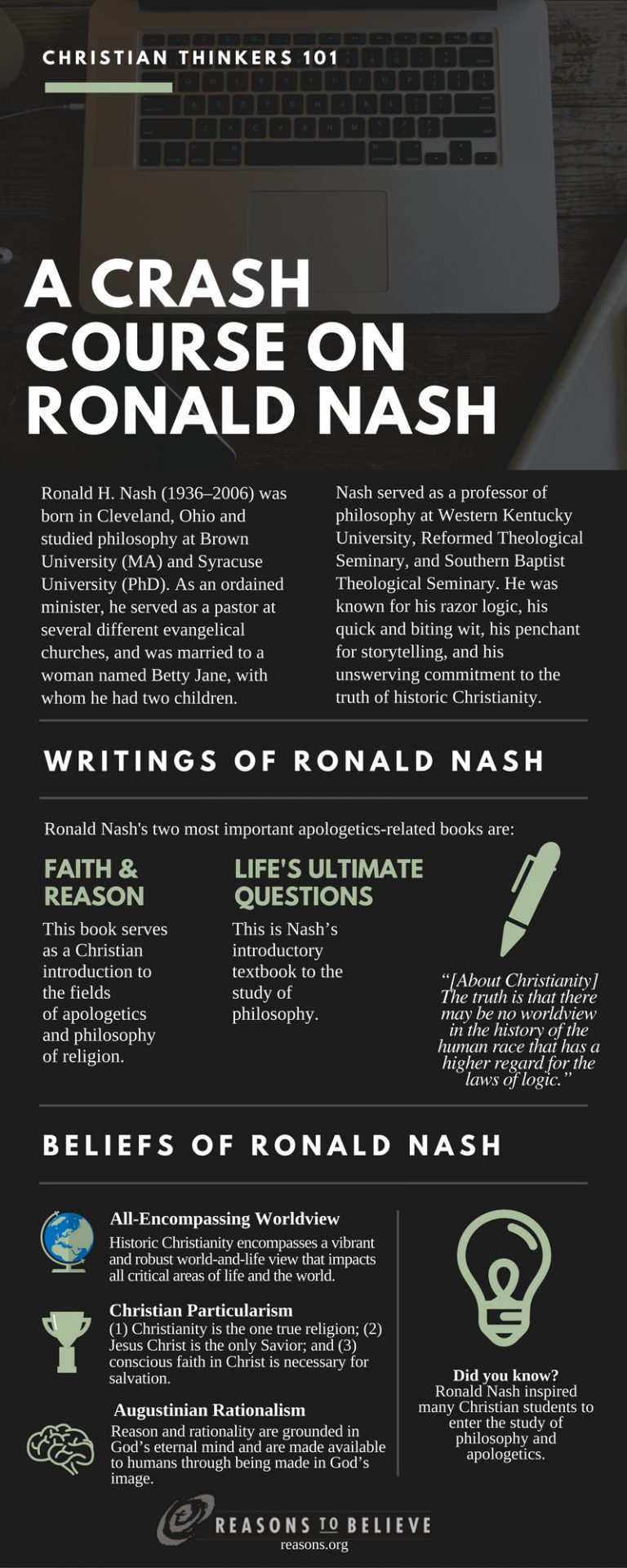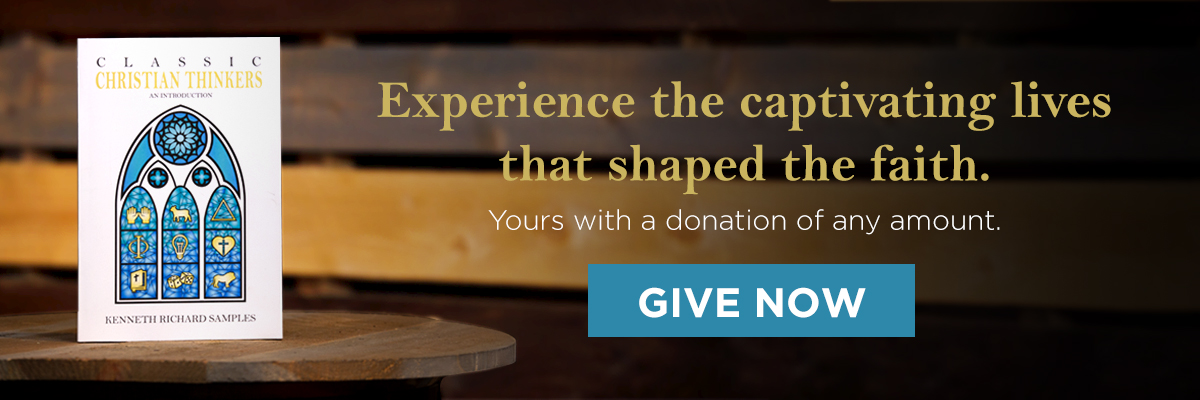Christian Thinkers 101: A Crash Course on Ronald Nash
Ronald Nash was one of the most influential evangelical Christian thinkers of the last half-century, but what exactly did he believe and what did he contribute to the Christian apologetics enterprise? Here’s your crash course on the life and accomplishments of Ronald Nash—and why he still matters today.
Who Was Ronald Nash?
Ronald H. Nash (1936–2006) was born in Cleveland, Ohio and studied philosophy at Brown University (MA) and Syracuse University (PhD). As an ordained minister, he served as a pastor at several different evangelical churches, and was married to a woman named Betty Jane, with whom he had two children. He was a lifelong student of St. Augustine of Hippo, his favorite philosopher, and was influenced by evangelical scholars Carl F. H. Henry and Gordon H. Clark. He was an evangelical Baptist philosopher and apologist in the Calvinistic theological tradition. Nash served as a professor of philosophy at Western Kentucky University, Reformed Theological Seminary, and Southern Baptist Theological Seminary. Ronald Nash was known for his razor logic, his quick and biting wit, his penchant for storytelling, and his unswerving commitment to the truth of historic Christianity.
What Did Ronald Nash Write?
Nash was a prolific author, having written or edited over 30 books. His works addressed such disciplines as philosophy, theology, history, economics, and apologetics. He once quipped that he didn’t think he had a thought he hadn’t published. Arguably his two most important books are Faith & Reason: Searching for a Rational Faith and Life’s Ultimate Questions: An Introduction to Philosophy. The first volume serves as a Christian introduction to the fields of apologetics and philosophy of religion. The second is Nash’s introductory textbook to the study of philosophy.

What Did Ronald Nash Believe?
As an evangelical Protestant (Calvinistic Baptist), Ronald Nash affirmed the doctrinal orthodoxy of historic Christianity. He rigorously defended Christian beliefs in the following ways:
- Nash insisted on seeing historic Christianity as encompassing a vibrant and robust world-and-life view. Refusing to view the faith as a jumble of theological bits and pieces, he lectured and wrote eloquently about how the Christian worldview impacted all critical areas of life and the world.
- Nash defended the position of Christian particularism (also called exclusivism) against the positions of religious pluralism and inclusivism. Christian particularism affirms three basic points: (1) Christianity is the one true religion; (2) Jesus Christ is the only Savior; and (3) conscious faith in Christ is necessary for salvation.
- Nash defended an Augustinian rationalism in which reason and rationality are grounded in God’s eternal and infinite mind and are made available to humans through being made in God’s image. Nash believed only Christian theism was able to account for the laws of logic and genuine knowledge and truth.
Why Does Ronald Nash Matter Today?
Ronald Nash is sometimes criticized for his bold style and his candid (and at times biting) criticism of some of his opponents. Yet his impact as a Christian thinker, professor, author, and pastor has been deep and wide, and his apologetics legacy endures. Nash was unique as a theologically and biblically astute philosopher. Though formally trained in philosophy, he was also well acquainted with systematic, historical, and biblical theology and wrote with great insight into the truths of Christianity. His commitment to a basic Augustinian Protestant theology shone through his work.
Evangelicals can learn a lot from the life and career of Ronald Nash. He was a fine scholar and had the courage to stand up for the gospel of Jesus Christ. He inspired many Christian students to enter the study of philosophy and apologetics.
Other articles in the Christian Thinkers 101 series: St. Augustine; C. S. Lewis; Blaise Pascal; St. Anselm; St. Athanasius; St. Thomas Aquinas; Jonathan Edwards; Søren Kierkegaard; St. Bonaventure; Martin Luther; John Calvin; Irenaeus; Tertullian; St. Basil; St. Jerome; Justin Martyr; Walter Martin; Mortimer Adler
Reflections: Your Turn
I am one of many who benefited from Ronald Nash’s encouragement and support. He even wrote the foreword to my book Without a Doubt. Which contemporary Christian thinkers and leaders have influenced you in your faith commitment? Visit Reflections on WordPress to comment with your response.
Resources
- A Memorial Tribute to Ronald H Nash (1936–2006) by Kenneth Samples (article)
- Worldviews in Conflict: Choosing Christianity in a World of Ideas by Ronald Nash (book)
- To interact with other Nashites like me, see the Dr. Ronald Nash Appreciation Society on Facebook.







